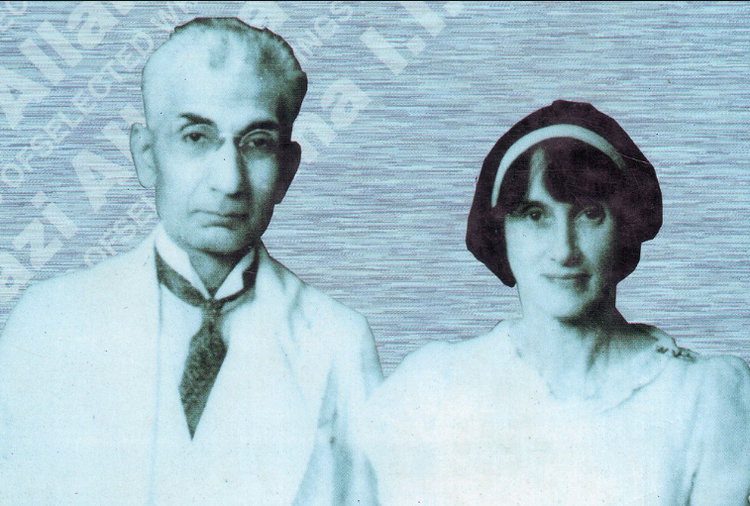
Elsa fell in love with Allama I. I. Kazi when she met him by chance in a London train. They married in 1910 in Germany
Elsa Kazi (1884–1967), commonly known as “Mother EIsa”, particularly in Sindh province of Pakistan was a German writer of one-act plays, short stories, novels and history, and a poet. She was also a composer and a musician of considerable achievement, involved in virtually every conspicuous branch of fine arts. Her paintings are often seen in many distinguished family homes. Although not well conversant with the Sindhi language, she yet managed to come with some of the best translations of selected verses of Shah Abdul Latif into English with the support of her husband, Allama Imdad Ali Kazi known as I. I. Kazi. She successfully couched the substance of those verses in a poetical setting which, in musical terms, reflects the original Sindhi metrical structure and expression in which Latif had cast them. Her translation of Shah Abdul Latif’s poetry is considered by many to be the best so far in the English language.
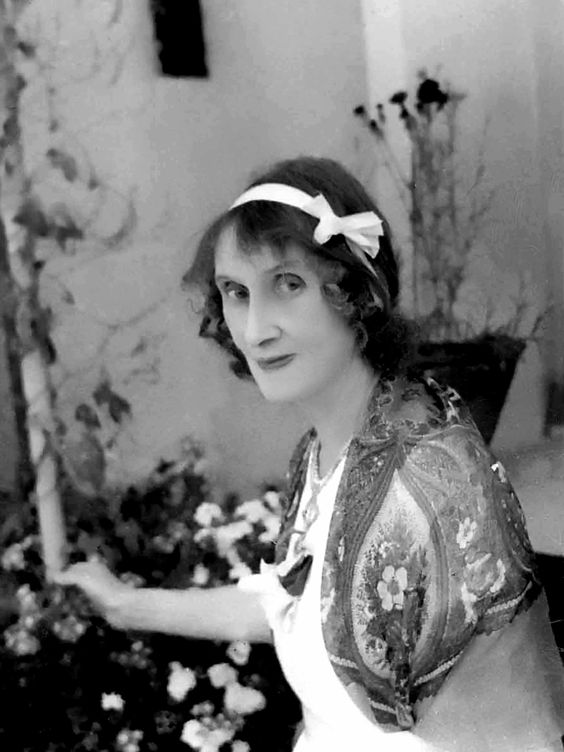 Her works have been the subject of several doctoral theses. She is also famous for her stories for children. Furthermore, the University of Washington Libraries has rated one of her works “Temptation: a drama of Sind country life in three acts” published in 1942 and “Aeolian: notes of an overstrung lyre” published in 1920 amongst the best South Asian literature that emerged prior to the Partition of India in 1947.
Her works have been the subject of several doctoral theses. She is also famous for her stories for children. Furthermore, the University of Washington Libraries has rated one of her works “Temptation: a drama of Sind country life in three acts” published in 1942 and “Aeolian: notes of an overstrung lyre” published in 1920 amongst the best South Asian literature that emerged prior to the Partition of India in 1947.
Born Gertrude Loesch in Rudel Stadt, a small village in Germany, in the house of a musician who ultimately migrated to London, she assumed the name of Elsa after marriage. Her father late Mr. Elderman was a prosperous German having property in London that was destroyed during World War II. After the war, compensation was paid to her for the same.
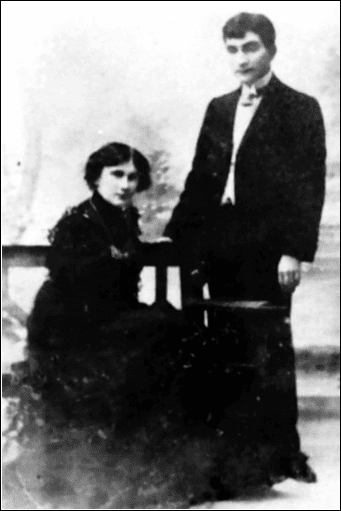
It was in London that she met the philosopher from Sindh, Allama I. I. Kazi by sheer chance. It so happened that Mr. Kazi, having arrived at the railway station while the train had already started moving, managed to board in the last compartment which was empty, except for a solitary young lady occupying a corner quarter. Reared in a traditional family background, Mr. Kazi felt very shy and embarrassed and kept standing near the door with his back to the lady. Elsa was amazed, astonished and amused to meet a man who would not take a seat despite her repeated offers, and would only repeat apologies. For such a man, she sought his address and thus developed a lifelong association. The couple was married in Germany in 1910.
The couple lived in London from 1911 to 1919, and occasionally made short visits to Sindh. Altogether, the couple spent 30 years of life in England, during which they remained engaged in research, tracing the evolution of religion through the ages up to the advent of Islam. Both of them contributed numerous essays, articles and addresses in various vital branches of modern knowledge, besides preaching Islam under the aegis of Jamiatul Muslimeen. In 1919, the couple returned to Sindh, and Allama Kazi first entered the judiciary as Chief Justice of the Khairpur State. Owing to certain differences with His Highness Mir Ali Nawaz of Khairpur, in addition to his dissatisfaction with the British policy towards the States, he resigned after a two-year stay, and the couple left for London.
The couple continued to propagate Islam in London till April 1951, when Allama Kazi accepted the office of Vice Chancellor of the University of Sindh. He resigned from this office after eight years, and thereafter the couple led a retired life at Hyderabad, Sindh at the residence of Ahmed Mohammad Kazi, an advocate of the Supreme Court of Pakistan and Principal of the Sindh Law College. In 1967, Elsa was suddenly taken seriously ill with renal problem, and died at the age of 83 on May 28. She had no children of her own, but all the university students and all the residents of Sindh call her Mother Elsa. Furthermore, several girls’ hostels and other buildings in the university district of Jamshoro created at the instance of her husband are named after her. She now lies buried along with Allama I. I. Kazi in the New Campus of Sindh University in Jamshoro, Hyderabad. Allama I. I. Kazi also passed away after a year in 198 following the demise of his beloved life partner.
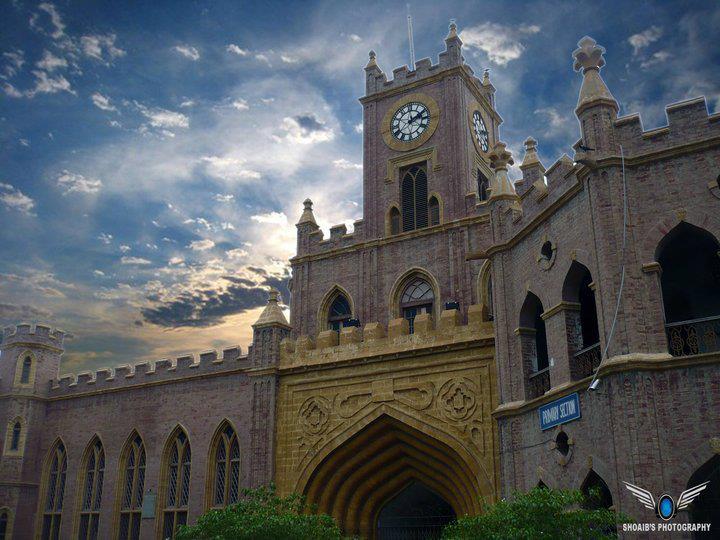
The like-mindedness of literature loving couple opened enormous avenues for enrichment of learning. Their spiritual attachment with each other and love for literature culminated in the production of great literature, music and exceptional pieces of art and knowledge.
Most widely held works by Elsa Kazi are:
- Risalo of Shah Abdul Latif (selections) by ʻAbd al-Laṭīf(Book) 3 editions published in 1965 in English and held by 35 WorldCat member libraries worldwide
- Flower fairy stories: a miscellany of flower fairy stories and essays by Elsa Kazi( Book ) 2 editions published in 1992 in English and held by 22 WorldCat member libraries worldwide
- Civilization through the ages: described by a transmigrating beard by Elsa Kazi( Book) 2 editions published in 1988 in English and held by 14 WorldCat member libraries worldwide
- Wisdom in Verse: being a miscellany of the shorter poems of Elsa Kazi by Elsa Kazi (Book)1 edition published in 1975 in English and held by 11 WorldCat member libraries worldwide
- Bhorī Chokrī Haqa jī g̈olā men = adventures of the brown girl in her search for God by I. I Kazi( Book ) 2 editions published between 1986 and 2008 in Sindhi and held by 7 WorldCat member libraries worldwide
- Novel, based on adventurous theme- Old English garden symphony: a novel with twelve themes exposition, development and recapitulation by Elsa Kazi (Book) 2 editions published in 1952 in English and held by 3 WorldCat member libraries worldwide
- Risalo by ʻAbd al-Laṭīf(Book)1 edition published in 1965 in English and held by 2 WorldCat member libraries worldwide
(Shah Abdul Latif’s Risalo is acknowledged across Pakistan and the wider diaspora as the greatest classic of Sindhi literature. In this collection of short Sufi verses, originally composed for musical performance, the poet creates a vast imaginative world of interlocking references to traditional Islamic themes of mystical and divine love and the scenery, society, and legends of the Sindh region. Latif (1689-1752), belonged to the class of Sufi saints whose shrines remain prominent features of the Sindhi landscape. The Risalo reflects Latif’s profound engagement with the fundamental literature of Islam as well as his openness to varied local traditions, including notable poems praising the spiritual devotion of local Hindu yogis. This edition presents, alongside the original text in the Sindhi Naskh script, the first translation of the Risalo into modern English prose, offering a new readership access to the writings of one of the masters of Sufi poetry)
- Æolian Notes of an Over-strung Lyre by Elsa Kazi(Book)1 edition published in 1920 in English and held by 2 WorldCat member libraries worldwide
- Temptation: a drama of Sind country life, in three acts by Elsa Kazi(Book) in English and held by 2 WorldCat member libraries worldwide
- Verses of Shah Abdul Latif Bhitai by ʻAbd al-Laṭīf(Book)1 edition published in 1972 in English and held by 1 WorldCat member library worldwide
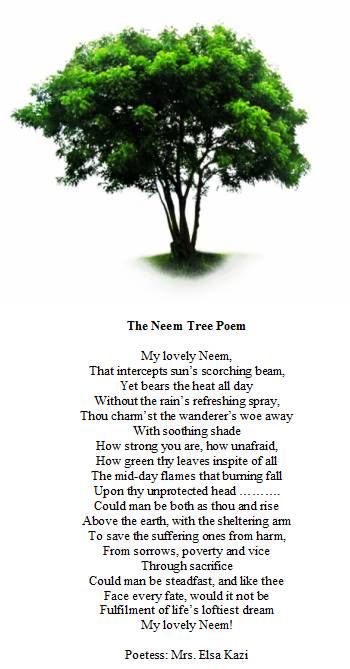 Elsa Kazi saw a shadowy tree in Sindh, and inquired its name and wrote a poem The Neem Tree on it.
Elsa Kazi saw a shadowy tree in Sindh, and inquired its name and wrote a poem The Neem Tree on it.
_____________________
Source: worldcat.org, The Day Is Green, Peoplepill.com and other websites